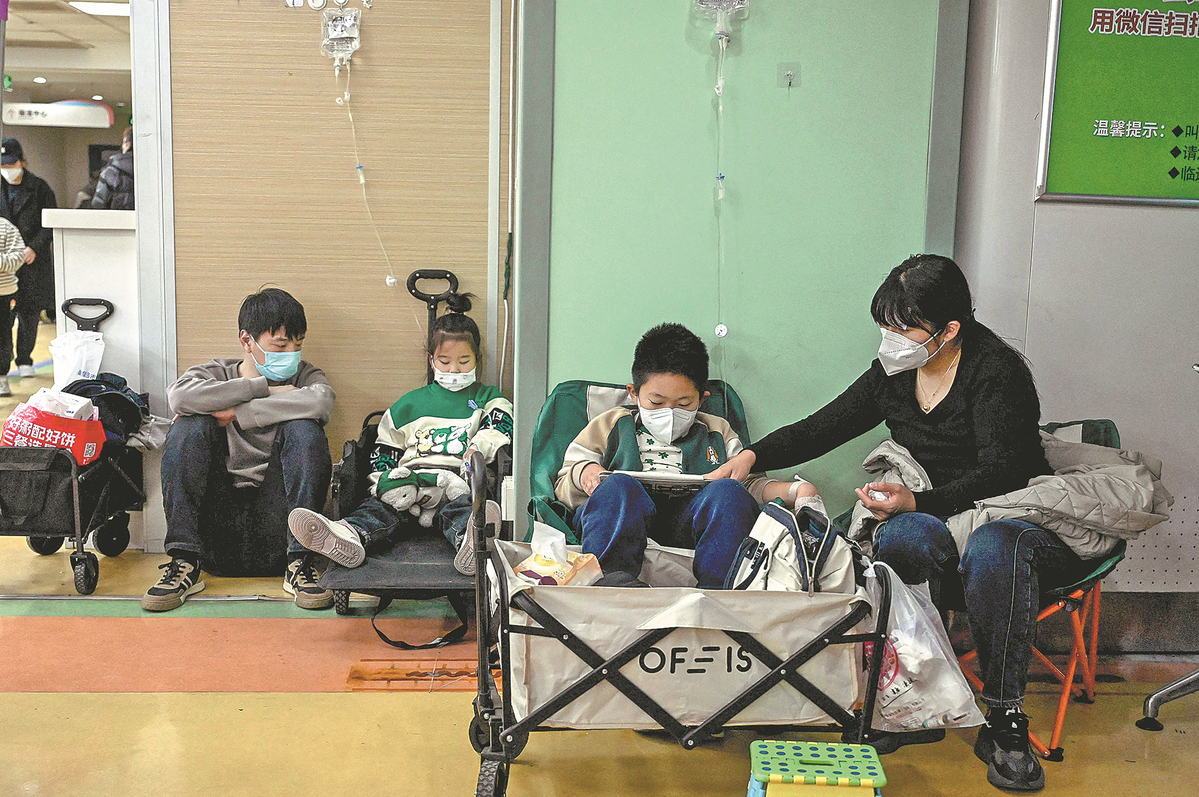Surge in respiratory illnesses caused by known pathogens, experts say

Health authorities in China said on Friday that no unknown pathogens have been detected amid a recent surge in infectious respiratory illnesses and that they have already held a meeting with the World Health Organization on the recent domestic epidemic situation.
Hu Qiangqiang, a spokesman for the National Health Commission, said that all respiratory cases cataloged in China's monitoring system and reported by hospitals are caused by known pathogens.
China has registered an increase in seasonal respiratory diseases since mid-October, fueled by the simultaneous circulation of influenza viruses, mycoplasma pneumoniae bacteria, the respiratory syncytial virus and adenoviruses, among other pathogens.
Children are among the worst affected this winter, with pediatric hospitals saying they are handling a record number of patients and waiting time in the outpatient department is often more than three hours.
Hu said the health commission held a videoconference on Thursday about infectious respiratory cases with WHO officials, which was also attended by experts from the Chinese Center for Disease Control and Prevention and the National Center for Children's Health.
During the conference, Chinese experts briefed all the attendees on the recent outbreak of respiratory illnesses in China and the country's efforts in monitoring pathogens, diagnosing diseases and prescribing treatment as well as offering health advisories, according to a statement released by the commission.
China and the WHO also communicated on epidemiology, pathology and clinical symptoms of infectious respiratory illnesses, and said they plan to keep exchanging information.
To deal with the surging number of patients, Hu said the commission has instructed localities to implement stratified care. It has also boosted the ability of grassroots facilities to diagnose and treat normal cases while keeping tabs on signs of severity.
Children with mild symptoms have been advised to seek treatment at community clinics or under pediatricians at general hospitals, instead of visiting pediatric hospitals, he said.
Also on Friday, the Joint Prevention and Control Mechanism of the State Council released a circular aimed at beefing up containment measures for COVID-19 cases and pathogens in the coming months.
According to the circular, China will likely see simultaneous circulation of multiple respiratory illnesses, including COVID-19, influenza and mycoplasma pneumoniae infections, this winter and in spring.
The risk of a rebound in COVID-19 cases this winter remains, although the current epidemic situation is stable, it said.
Meanwhile, cases of influenza and mycoplasma pneumoniae infections have been on the rise since October. Flu cases are expected to register a peak in the coming months, while mycoplasma pneumoniae infections will continue to spread fast in some regions.
The circular emphasized using different sources of data from online reporting systems, fever clinics, sentinel hospitals and laboratory test results as part of efforts to strengthen monitoring of and early warning against contagious diseases.
In addition, personal protection measures and health monitoring efforts at nursery care and elderly care homes as well as schools should be reinforced, and vaccination campaigns targeting the elderly, people with preexisting diseases and children should be intensified, it said.
Localities are instructed to allocate medical resources to fit intensity of regional epidemic situations and strengthen the supply of key medications, especially pediatric drugs.
Epidemic control measures at ports such as measuring body temperatures of inbound passengers, carrying out epidemiological investigations and medical screenings should also be strictly implemented, it added.

